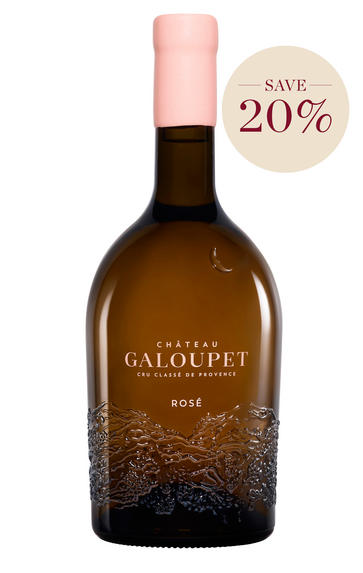
2021 Château Galoupet, Côtes de Provence, Rosé
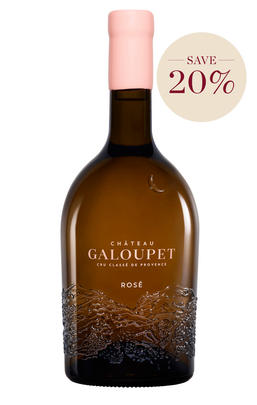
Critics reviews
Full, cork-stoppered dramatic, eye-catching, inconveniently (for wine racks) fat, amber glass embossed bottle, proudly stating ‘Cru Classé de Provence’, just 1,242 g.
Pale Provençal pink. Quite a big wine. Arguably less refreshing than some of its peers. But perhaps with age, it will assume relative greatness? Very definitely a wine for food; this has depth and potential. Some persistence, and it lasted well in an open bottle for over 24 hours.
Drink 2022 - 2025
Jancis Robinson MW, JancisRobinson.com (May 2022)
This has a perfumed nose of roses, pressed flowers, pomegranates, cherry stones and pink grapefruit. Many flavours are packed into a medium to full body yet remain elegant and clear. Turns mineral and textured with a dry, lengthy finish. Blend of grenache, syrah, mourvedre and tibouren.
Drink now
James Suckling, JamesSuckling.com (January 2023)
Contains 49% Grenache, 12% Tibouren, 11% of co-fermented Syrah and Rolle, 7% Cinsault, and 2% of Mourvèdre, Cabernet and Sémillon.
Pale salmon pink. Still youthful with subtle notes of oak and red berries on the nose. On the palate there's elegant white fruit with ripe white peaches, a hint of white flowers, a whisper of sweet Tibouren apricot fruit mid-palate, and some oaky vanillin notes. Firm minerality mid-palate gives depth and structure while the long saline acidity gives an elegant freshness. Good concentration and intensity with a clean, pristine finish and good ageing potential.
Drink 2022 - 2027
Elizabeth Gabay MW, Decanter.com (March 2022)
About this WINE
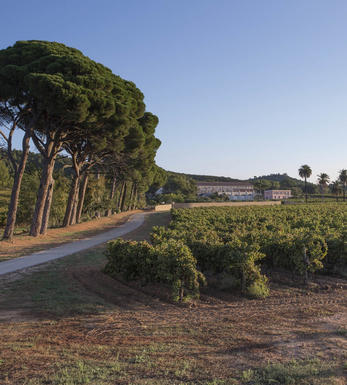
Château Galoupet
Château Galoupet has a rich history dating back over 200 years. Situated in Provence’s oldest region, it was awarded the status of Cru Classé Cotes de Provence in 1955, and was one of just 18 estates to receive the honour. Having exchanged hands 15 times in the past two centuries, it was most recently refounded by Jessica Julmy in 2019. She held a vision for Château Galoupet: one of elegant, terroir-expressive wines, as well as its transformation into a blueprint for sustainable winemaking.
Only grapes grown on the estate are used in winemaking. 69 hectares are under vine, while 77 hectares are set aside for wild protected woodland; environmentalism is a key focus for Château Galoupet Since 2019, full focus has been placed on regenerative work, improving the soils, vines and biodiversity of the estate. All vines have been in organic conversion since August 2020.
Seven grape varieties are planted on the estate: Cinsault, Grenache, Mourvedre, Rolle, Semillon, Syrah, and the rare Tibouren. This hard-to-grow grape is virtually unknown outside France’s Var department and just 2% of Provence’s vineyards are planted with it. Yet, Château Galoupet are investing significant amounts of time and energy into Tibouren vines, seeing it as their future signature varietal.
Its first rosés, produced under organic conversion, were released in March 2022. This includes its flagship wine: Château Galoupet Cru Classé, a rich, complex and partially barrel-aged rosé that features the intensely aromatic Tibouren.
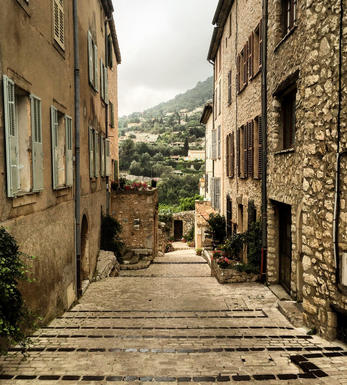
Côtes de Provence
Reputedly the source of Louis XIV’s favourite wines, Côtes de Provence lies in the south-east of Provence and overlaps with the Var department. Coteaux Varois is sandwiched between two parts of the Côtes de Provence appellation; the enclaves of Cassis, Bandol and Palette are also nestled between pockets of land to the south and east of Côtes de Provence.
Eighty percent of the appellation’s production is dry rosé wine, distinguished by an inimitable pale-pink colour and elegant flavours. Cinsault and Grenache dominate in the region’s rosés, augmented with the occasional dash of the local, intensely aromatic Tibouren. The AOC regulations stipulate that at least 20 percent of a rosé blend must come from wine made using the saignée (literally, ‘bleeding’) method.
The remaining 20 percent of the region’s production is dedicated 15 percent to red and five percent to white wines. Following the Phylloxera epidemic known as the Great French Wine Blight in the late 1800s, much of Côtes de Provence was replanted with the high-yielding Carignan vine.
Since the late 1990s, a host of new, small, dynamic estates has started to focus on a new-wave style of red wines, characterised by full-fruit ripeness, concentration, and soft tannins and using ameliorateur varieties such as Syrah and Cabernet Sauvignon, which are gradually replacing the once ubiquitous Carignan.
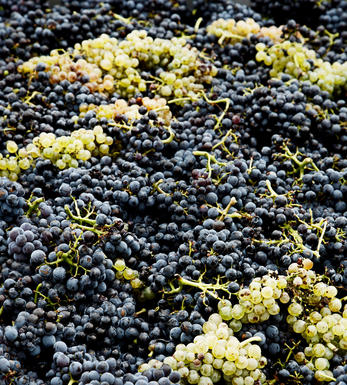
Other Varieties
There are over 200 different grape varieties used in modern wine making (from a total of over 1000). Most lesser known blends and varieties are traditional to specific parts of the world.


Buying options
Add to wishlist
Description
The price of the 75cl bottle, reduced from £45 previously, includes a 20% discount. This offer does not apply to BBX listings.
Classic salmon-pink Provencal rose with bright, herby lift and the sort of punchy, peppery palate that needs garlicky food to shine.
Jane MacQuitty, The Times (May 2023)
This stylishly packaged gastronomic wine has aromas of red cherry, marmalade and lemon, and in the mouth good acidity and a fine spicy note, as well as lemon and cherry fruit.
Jamie Goode, Sunday Express (October 2023)
This is a beautiful new rosé from one of Provence’s most sustainable producers. Flavours of delicate white peach, dried rose petals, alpine strawberries and hints of Provençal herbs are underpinned by a rounded almond-pastry character, thanks to partial oak fermentation. A very serious wine, this will pair just as comfortably with barbecued seafood as an aperitif on a warm day; a perfect summer rosé.
Ready to drink now
Paul Keating, Private Account Manager, Berry Bros. & Rudd (June 2022)
wine at a glance
Delivery and quality guarantee